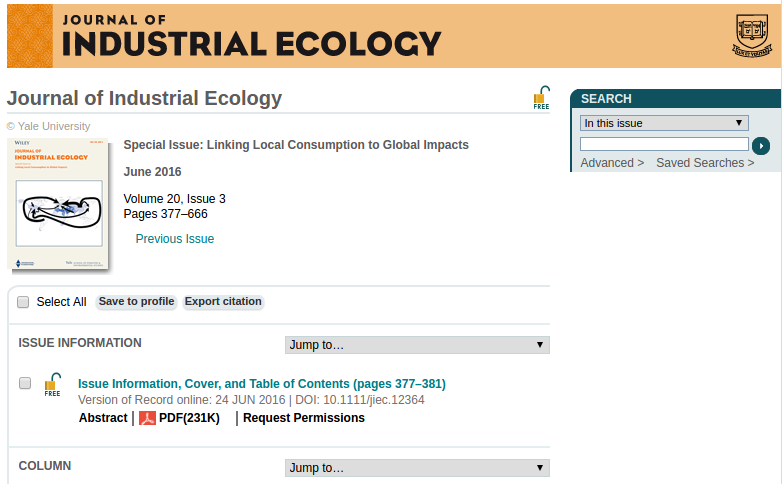Reid Lifset from Yale University shared the following special issue with us that links clocal consumption to global impacts:
Dear SCORAI-ites
In a new special issue, “Linking Local Consumption and Global Impacts,” Yale’s Journal of Industrial Ecology examines the virtual shrinking of distances between places — arising because of trade, telecommunication and travel — and the widening gap between where products are made, where they’re used, and where the impacts occur.
The articles link consumption and/or production activities to a wide range of environmental impacts, including water, energy and land use; various pollutants; and economic and social indicators, such as child labor, social costs of carbon, and loss of human life.
Highlights of the issue include:
- An assessment of the impacts of the 21st century Great Recession on income inequality and households’ carbon footprint.
- An examination of the global implications of China’s future food demand
- Tracking of water footprints at the micro- and meso-scale through combining MRIO (multiregional input output analysis) and geographical information system (GIS)
- An assessment of child labor’s role in Indian production and global consumption
- A look at the unequal carbon exchanges of iconic U.S. consumption items
- Discussion on the role of trade openness in the context of climate-change mitigation
- An analysis of households’ direct and indirect material, water, and land use requirements and GHG emissions
- Research that links a consumer expenditure survey to a global MRIO database to assess the carbon footprint for different household categories
- A global framework for reconciling top-down with bottom-up approaches for identifying and evaluating the effectiveness of different scenarios about the future
The Journal of Industrial Ecology is a peer-reviewed international scientific journal owned by Yale University and headquartered at the Center for Industrial Ecology of the Yale School of Forestry & Environmental Studies.
Articles in the special issue are freely downloadable for several weeks. See http://bit.ly/JIE-LC-ToC.
Sincerely,
Reid Lifset


